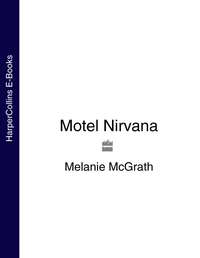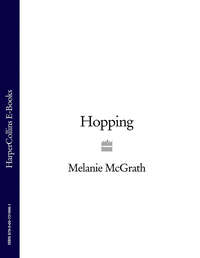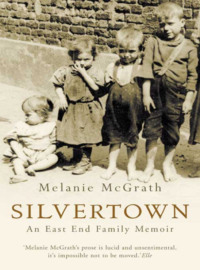
Полная версия
Hard, Soft and Wet
SATURDAY
I appear to have given up on the real world. At least, I am spending less and less time in it and as a result I find that it has transformed into a drab waystation for the satisfaction of what Mac calls ‘meat needs’. Food, a bed, a shower.
The most valued part of my day begins around six in the evening, which is morning in California, of course. And also, conveniently enough, when telephone charges fall. It ends at dawn. In between Mac and I compose our e-mail, argue through the finer points of this and that, draw our secret conclusions. We don’t talk about our lives, what we eat for breakfast. We don’t have lives as such to talk about right now, we only have survival tactics: sleep, drink, eat, shit. We don’t go in for revelation. We’re already far too intimate. We chew over the things that matter. The issues.
For example, is the real world binary or analogue? According to Mac, the binary world of 1s and 0s that the computer understands isn’t necessarily a description of real reality because real reality deals more in degrees of grey than in black and white. But then light grey is not-dark grey just as much as black is not-white. Which makes it binary. We considered this conundrum at our respective screens six thousand miles apart and came to the conclusion that we’d got ourselves into a loop. So I called it a day, which it was actually becoming, and fell asleep with sunlight beginning to warm my eyelids.
SUNDAY
I mention binary vs analogue to Nancy. She mails back:
> I’d check that off your list of concerns. It’s one of those typically recursive analytical things that nerdy types get all steamed up over.
That ‘been there done that’ edge to all her messages pips my wick. Plus, Macadamia is not ‘a nerdy type.’
The real world seems more lonely than before. Sitting here at my screen in England, I feel like a one-woman species.
MONDAY
Discovery! I am not a one-woman species. A home-grown electronic scene has been going on quite nicely without me all this time.
iD magazine runs a piece about a seventeen-year-old electronic musician, techno’s latest wunderkind. Eyes skulk out from the page in imitation menace. Puffa jacket expands the frame. I make a note to track him down.
SUNDAY, NEARLY A WEEK LATER
A suburban train trundling west. Daniel the wunderkind meets me at the station, dressed in an outsized hip-hop hooded coat. The same uncertain flicker on the face. The same aura of indifference.
‘Hello Daniel.’ I meet his eye.
‘Yeah, hahaha,’ he roars, refusing to hold my gaze, ‘let’s go.’ And with that, he marches through the station, strides across the road, speeds along a genteel street filled with cheap antiques shops and mock Parisian cafés, and swings into a long residential road, dragging me panting behind him.
We are standing in an Aladdin’s cave posing as a kitchen. The room is strangled in stuff: papers, envelopes, posters, pictures, milk bottles, flower pots, tins of floor polish, spare curtains, photos, books, ancient magazines, biscuits, scissors, drainers, pans, packets of crisps, flowers, fruit, memo pads, wine bottles, telephones, pencils on string, children’s drawings, hairbrushes, highchairs, napkins, drying cloths, fridge magnets, a bath sponge, the whole finished off by the smell of a warming oven and roasted garlic. Daniel’s mother appears, looking far away and harassed.
‘Would you like a cup of coffee?’
‘That’s OK,’ I smile, ‘I’m sure Daniel can make it.’
‘No, actually, I can’t.’ Daniel contradicts me with an awkward sort of playfulness. ‘I broke the cappuccino machine, hahaha.’
‘I’ll have instant coffee then.’ Daniel reaches for the jar, tips it towards me for inspection and adopts a helpless air. ‘Uh, haha, Mum uses it to dye fabrics.’ The thin black crust clings to the bottom. A young woman walks into the kitchen, takes note of Daniel’s lost-boy look, says:
‘I’ll make the coffee, OK?’
‘OK,’ says Daniel.
Later, we’re sitting at the kitchen table cupping our coffee mugs. I ask:
‘Was that the au pair?’
Daniel throws me a strange look, catches my eye fleetingly, and, pretending he thinks the whole thing a joke, blusters: ‘Hahaha, that was my younger sister.’ Daniel has four younger sisters and no brothers. I guess that can’t be easy.
You wouldn’t believe the Daniel household existed unless you’d seen it for yourself. On the ground floor oak chests crammed into every corner, dolls, toys, rocking horses pressed against the windows, paintings, prints, posters on the walls, walls thick with layered paint and images, Turkish kelims fighting for space with knotted Persian rugs, cushions everywhere, never-watered plants clinging on to life, books, magazines from the seventies, goldfish in lime green aquaria. One storey up, angelic-looking toddler twins chasing from room to room followed closely by a six-year-old throwing dolls about, phones ringing, the sound of ascendant violins from the father’s study, more oak chests spewing bits of paper and embroidery from their stuffed drawers, a dust crust lying over everything.
We climb to Daniel’s bedroom on the third floor. Bed unmade, smell of skin, magazines in piles fanning out from every horizontal surface, posters of Orbital, snowboarding and computer games on the wall, in the centre of the room a home-made horseshoe consisting in keyboard, four-track and Atari computer.
‘So,’ says Daniel, fitting himself into a chair behind the horseshoe, ‘I suppose you’ll be wanting to hear Bedroom.’
Bedroom is Daniel’s first and recently released album, the thing that got him written up in iD. He was sixteen when he made it. In his bedroom. He takes a copy from its jewel box, hands me the CD cover.
‘See that?’ He points to a red smear on the cover. ‘That’s my shit robot I had like when I was six, and that bit’s a piece of wall, hahaha, you’ll probably think it’s crap and yeah, so this is the first track, I like this bit where it goes …’
A resonant boom fills the bedroom. Daniel reaches down for the track skip button.
‘And then this is one, which I think’s shit, really, although Morris likes it, hahaha and listen to this track, “Underwater”, which has this wicked noise I taped in the toilets at school, and here’s …’ Each track in turn a throb, a series of sound pictures. Nothing you’d call a tune, quite. Daniel races through the tracks, two seconds per track, talking at ten to the dozen. He moves along his CD collection, extracting jewel cases, flinging them in the player. ‘So this one’s Wagon Christ,’ pulling them out again. ‘Yeah, listen to this MLO track, it’s really cool,’ casting them aside and moving onto the next. ‘And this bit by the Aphex Twin, wicked, better than some of his other stuff, hahaha, although I like him and this is David Toop who I’m gonna do some work with, but hahaha you’ll probably think it’s crap …’
‘Daniel,’ I say, looking up from the magazine I’m leafing through. ‘Why aren’t there any pictures of supermodels in your bedroom?’
‘I am not gay,’ says Daniel emphatically, his face developing a reddish glow which makes me feel as mean as a scalded dog. ‘Although I’m not saying it would matter if I was, except to my dad.’
‘Who’s Morris?’ I change tack while Daniel fights off his embarrassment, but at this he looks up momentarily, decides it’s a joke and giggles.
‘No, really,’ I pursue, ‘Who is Morris?’
Daniel is stunned. Uncomprehending. Speechless. I don’t know who Morris is? Mixmaster Morris? Morris of the mixdesk? Morris of the music scene? DJ Morris, top bloke Morris? Ambient techno’s own Mixmaster?
‘Not Morris as in dancing, then?’
Daniel ignores the jibe, or maybe just pretends he hasn’t heard it.
‘So,’ he says, blustery once more, ‘you’ll probably be wanting to see this really crap Yamaha keyboard, which my parents bought me for my birthday when I was like a kid, hahaha, and then this is the four-track, and this really cool keyboard, which is a Korg Wavestation and …’
‘Daniel,’ I say, ‘can we go and have some lunch now?’
Lunch turns out to be a benign chaos of toddler demands and counter-demands, mother organizing, au pair sister rushing about, curly haired six-year-old banging her spoon on the table, oven timer going off, kids wanting gravy, no potatoes, or potatoes and no carrots, more carrots, fewer potatoes, more orange juice, less meat. Daniel and his father sit in the midst of it all, unbowed. Phone ringing again, Daniel answering it, shouting through toddler cries:
‘Hahaha, yeah, can I ring you back? Thanks.’
‘Daniel doesn’t like my cooking,’ says the mother.
‘Yes I do,’ says Daniel.
After lunch Daniel makes a bold attempt to play me a few more selections from his CD collection, but I cut him short. I want to know where he made the money to buy his kit, which leads to a safari through Daniel’s magazine collection, featuring articles by … Daniel. Aged twelve he pesters his way to a job writing computer games reviews for Zero magazine, then moves on to a more serious role compiling a tips column in GameZone. At fifteen he’s making a mint.
‘In fact,’ he rallies, ‘I designed some games myself. They’re crap, but I s’pose you’re gonna want to see them, hahaha …’
I emerge from Daniel’s bedroom about two hours later, battered but unbloodied.
Whatever aching tangle or peaceful blue lagoon exists beyond the bloom in Daniel’s eyes he keeps hidden beneath a whirl of talk and action. Nothing of the real Daniel, whatever that may be, is available for public view save for a few minute and unconscious inflexions of his voice and body. Nonetheless, I have a sense that Daniel is about to become an important part of my little project. I request another meeting. ‘What?’ He exudes an air of puppyish hurt. I shake my head by way of reply, faintly bemused. Some small shutter closes over the chink in Daniel’s armoury.
‘I’m DJing at the Big Chill in a couple of weeks. If you want to go on the guest list, you’d better speak to my manager and say you’re from one of the papers, and thank you very much,’ says Daniel, cold as January wind.
I ring the manager and mention I’ve been round to lunch.
‘What a cacophony,’ I remark, in what I hope is an indulgent tone. The manager takes it differently.
‘Well how d’ya think I felt?’ he replies, sounding plaintive. ‘Sitting down to roast lamb and mint sauce with my client’s mum and dad? I’m a rock’n’roll manager for chrissakes.’
MONDAY
Early morning, wind hammering on the windows and the cat curling through my legs to remind me I haven’t yet got round to feeding it.
Thinking about Daniel, or maybe the electronic scene, I e-mail Mac:
>Hey, Mac, do you think it’s possible to make generational statements, or are generations created by the statements made about them?
He mails back:
>What do you have in mind?
I scribble down on a piece of paper all the generational clichés I’ve ever come across. It’s a long list.
>Well, the presumption that 15-25-year-olds have a totally relativist set of morals whereas all us older people are more absolute about things.
You tap out an e-mail message and play it back in your head and Bingo! It becomes the most profound, the most meaningful, the freshest thought you ever had.
>Actually it seems to me that pretty much *everyone* has a relativist set of morals, it’s just that *society’s* morals have traditionally been absolute.
I suppose it’s a silly fantasy of oneness, e-mail. But then again perhaps it’s not a fantasy. Perhaps, maybe. I don’t know yet.
I sit and think blanks for a while, then finish tapping in my note to Mac.
>Maybe the 15-25-year-olds feel that society’s mores have broken down and they’re simply less hypocritical than the rest of us. Or maybe it’s just that they haven’t learnt how to be full-on hypocrites yet.
No, it’s not the perfect communication, but it’s damned near. An imperfect kind of telepathy.
I leave the screen for a moment and fetch myself a can of root beer. Cat follows at a hopeful trot. Mac’s answer is scrolling up on my return.
>I’d go along with that. Younger people are less hypocritical, definitely. Oh wow, it’s just started to rain.:-)
I glance towards the window, notice twists of rainwater spiralling down the panes and whitened in the light of the desk lamp. Cat yells.
>Here too.
How weird.
>What else?
>Well, issues. When I was a teenager… I think back and do my best to stifle the memory … it was nuclear war and trades unions. These days it’s animal rights, anti-racism, ecology and homelessness. We didn’t really think about that stuff. Oh I don’t know. Things change so *fast* is all.
Animal rights. Cat’s begging has become so insistent I’m driven to leaving the screen and pouring him some Go-Cat biscuits. On my return I tap ‘A’ to send the mail, remember all the points I’ve forgotten to mention and open another e-mail file.
>The decline in trust - another generational cliché. Can’t rely on your education to equip you for a job, there aren’t any jobs, can’t rely on your parents to stay together because half of them won’t, can’t rely on care when care means weirdos and sex abuse, can’t rely on god and the church ditto, can’t even turn to that old teenage staple, sex, on account of AIDS. Or how about this? A generation used to the idea that the only power they’ve really got is consumer power. Disenchanted with politics, enamoured of product.
I tap in ‘A’ again and take myself off for a pee. No word from Mac on my return.
>Mac, hello, I’m talking to you!
Electronic silence prevails. I wait a little while, humming over my screen like a wasp circling a honey trap but no word arrives. Mac has taken on such a sudden and unexpected importance in my life and yet I’ve never met him.
TUESDAY
This is Mac’s eventual offering, paraphrased:
Even though the culture is ridden with premillennial tension the great thing about living at the end of the century is that there’s at least the theoretical possibility of being able to start out fresh. New beginnings, redemption, the Second Chance. So typically American.
WEDNESDAY
A disconcerting lunchtime revelation. Mac is not American. I suppose I should have noticed that he doesn’t spell like an American, but I was too busy making assumptions.
>Why didn’t you tell me before? I typed.
>The Internet makes national borders irrelevant. He typed back.
Somehow all this matters terribly. The beautiful edifice of projections tumbles. Macadamia the California nut is actually Mac a British human being … which makes me what? Some lovesick clown dreaming of California on a computer.
Dawn arrives, but I don’t sleep. I drift about in the pale half-life between unconsciousness and dreams.
FRIDAY
A ticket to Daniel’s DJ event arrives, along with his World Wide Web address. I spend ten minutes leafing through its two main sections, Boredom and Bedroom. Bedroom is the life story of his ambient techno album, Boredom is everything else that has ever happened to Daniel and is capable of being distilled down into two-sentence sound bytes and graffiti graphics. A lot, in other words.
SATURDAY
The moon is made of gorgonzola
Determined not to be entirely ignorant in the face of ‘the scene’ event tomorrow, I pass much of the day in Ambient Soho, Unity, Tower Records in Piccadilly Circus and with a pile of NMEs, Melody Makers, iDs and Mixmags catching up on being young. Nonetheless, I feel like someone trying to swing. My one comfort is that at least I now know what ambient techno is. It’s aural wallpaper, slews of electronic sounds devoid of narrative. Future noyz. Geek pop. Which makes Daniel a geek pop king.
Four hours with the music press has taught me something else too: Geek pop kings make it big on the quiet. They don’t appear on the covers of NME and Melody Maker. Aphex Twin, the Orb, MLO, Muziq, Wagon Christ, Cosmic Baby – a bunch of egghead boys with tiny marble eyes and thin white features bounded by fuzzy hair and street style. Mostly they work alone, up in the teen-boy heaven of circuitry and kit control, remixing, remodelling, switching names as fast as record labels, in constant drift and flux; sampling, distorting, sequencing, dipping, cruising around the musical ether. Occasionally they collaborate – two tides of repressed testosterone converging in a sound wave.
Geek pop albums – Lunar 7, Electron Pod, Weimar Supernova – are named after bits of Germano-Japanese technology and scifi tropes, presented with sleeve notes quoting from French deconstructionist theory and The Brady Bunch. The albums are divided into quadrants and sectors, their tracks given numinously impenetrable titles. ‘Phragmal Synthesis Part 3’. ‘Nexus Techtronics’. ‘Tokyono’. ‘Space Warp Exodus’. Albums more like pieces of machinery, heavy with devices, levers, buttons, musical gadgetry, technical gewgaws, bytes and showy displays of novelty. Sometimes a secret track lurks beyond the album’s seeming end, causing entire Internet newsgroups to spring up in order to explore more fully the profundities of geek pop secret tracks, the digital generation’s equivalent of ‘Stairway to Heaven’ and ‘Sympathy for the Devil’ played backwards.
From ‘A Thousand Plateaux’, a geek pop manifesto, written by two French theoreticians, Gilles Deleuze and Felix Guattari:
A musical consistence-machine, a SOUNDMACHINE (not for the reproduction of tones) one, that, molecularises the sound material, atomises and ionises and captures the COSMIC energy. If this machine should have another structure than the synthesiser, in that it unites the modules, original elements and working elements, the oscillators, generators and transformers and brings together the micro intervals it makes the sound process and the production of this process itself, audible. In this way it brings us together with more elements that go further than the sound material. It unites the contradicting elements in the material and transfers the parameters from a formula to another. The synthesiser, with its consistence-operation, has, a priori, taken the position of establishing in the synthetic decision: this is a synthesis of molecular and cosmic, of material and energy and no more of form and material, ground and territory. Philosophy no more as a synthetic judgement but as synthesiser of thought, to allow thought to travel, to make it mobile, and make it to an energy of the cosmos as one sends sound off to travel…
A reminder, incidentally, of a course in formal logic I took at college:
It is raining
It is not raining
Therefore Paris is in France.
And the moon is made of Gorgonzola.
SUNDAY FOLLOWING
The Big Chill. Daniel’s hair is plaited into embryonic dreads and stuffed into a multi-coloured woollen hat with woollen tube extensions running from its centre, giving him the appearance of a sprouted octopus at carnival.
Neo-hippies crash on sweaty mattresses caressed by the velvet pall of ganja smoke and Daniel’s ambient techno seepage. Chillin’. Overhead a video jock projects computer-generated images across the walls as Daniel mixes the Radio One Top 40 live into his set. The room so dark that, save for Hindu goddesses, mandalas dancing alongside dolphins, the sun rising in reverse, a tribe of faceless mannequins running through a perspectival tunnel, it might be a solitary cell or even a womb.
Across the corridor in another room technopagans flip through the World Wide Web and patrol the alternative spirituality channels in Internet Relay Chat, pondering the Jungian archetypes over leaden carrot cake.
And all this time Daniel is looming over his mixing desk, shaking his tentacles and mixing the Radio One Top 40 live.
Afterwards he says: ‘That was the first Radio One Top 40 ever mixed live into a set. Hahaha.’
I doubt anyone noticed Daniel making musical history, but that’s the way it goes.
TUESDAY
I phone the editor of iD on a whim.
‘Daniel, oh yes. After our piece about him appeared, he called wanting to write for us and he didn’t stop ringing until I’d given in.’
‘Guts.’
‘Yeah,’ the editor chuckles to herself. ‘Daniel is definitely a one-off.’
Memories of my late teendom include a tumble of hopeless crushes, Steppenwolf, Jaws, electro-pop, Saturday Night Fever, suicide bands. And a permanent rictus of raw and unrequited rage. All the usual teenage apparatus, in other words.
WEDNESDAY
E-mail from Mac, requesting my public key. Whatever that is.
THURSDAY
More discoveries. A public key lets Macadamia send an encrypted message. What message, he won’t say. Some time after midnight he forwards software called Pretty Good Privacy, along with a list of instructions which will supposedly enable me to generate some secret codes called keys.
Note: Though we both live in London, we work on California time. Like I said, we’re sadsacks.
>The US government has classed pgp as munitions. Exporting it from the USA is illegal, like running guns writes Mac.
I can’t imagine what he has to tell me that’s so secret. That he’s a hitman perhaps? A secret agent? Herpes carrier? Cricket fan?
In order to send or receive a PGP-encrypted message, I have to command the software to generate two keys, a public one which I can give out to Mac and a private one, which I have to keep to myself. The public key can only encode. It can’t decode. So the principle is that I send Mac my public key, he encodes his message with it, sends it back to me, and I decrypt it using my private key. If he sends the message via an anonymous mailer, a computer which removes all reference to his name and e-mail address, it’s almost untraceable and almost completely secure.
Oh well, however shocking or terrible the message is, I don’t care. Mac makes me laugh and I like the way his mind works and we’re only friends in any case.
A long paragraph of capital letters and keyboard symbols appears on the screen some time after two. I instruct the programme to decrypt and stand back. The hard disk light topspins on-offs. Symbols flip as fast as numbers on the propaganda boards advertising the savings you make by switching telecom companies. In America. Eventually, four lines of message emerge from the chaos, like Poseidon coming up to quell the sea. Line one: Mac’s real-life name. Lines two to four: his address and phone number.
>Mac, your name and number are in the phone book. I just looked them up.
Phone numbers? This isn’t the point of virtual life at all. The point of virtual life is to remain apart, distinct, ethereal, untouched by the mess of reality. The point of it is its sheer mystery.
>I won’t phone you, Mac, and you won’t phone me.
Sometimes people have to be told things they ought to know already.






